We use search engines like Google every day to search for different things—music, videos, articles, images, and all sorts.
Google’s algorithm analyses search queries and try to find the best results that match those queries, but there are ways you can streamline your search queries to save yourself from going through results that are irrelevant to your interests. You can be more specific about what you are looking for so that Google can prioritize the search results better.
Directly specifying what you want is a great way to get the exact results or best matches for your particular interests.
In the rest of this article, I’ll share six (6) search tips you can use to improve your search experience on Google.
When you search for a query like Using JavaScript to build a Robot, Google tries to find the best match for these keywords in a different order. Here’s a search result I got:
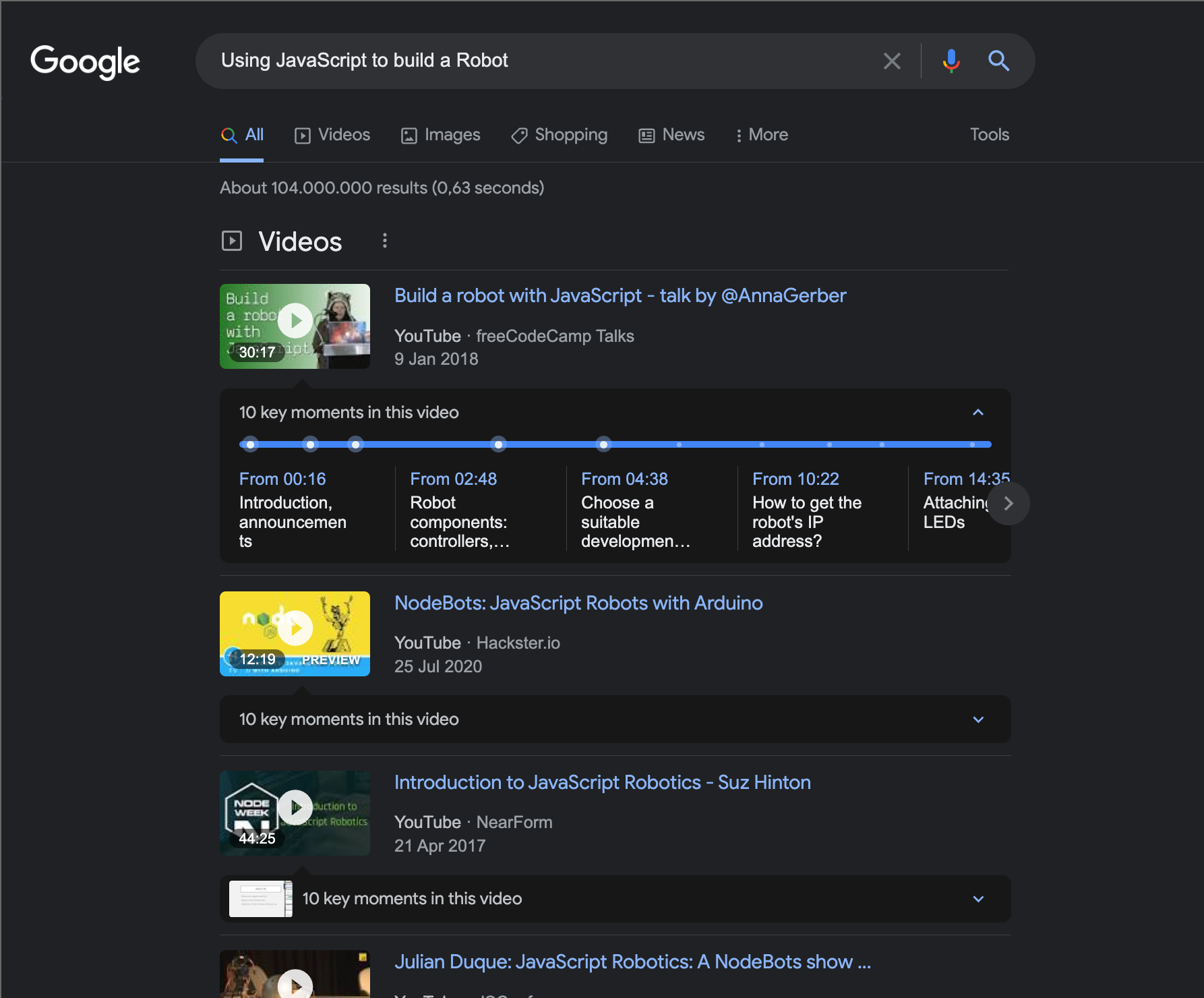
Although the first result seems like an excellent match for what I’m looking for, you can see the keywords arranged in a different order. If I want to strictly tell Google to get results that match that Using JavaScript to build a Robot then I’ll use quotes like this: “Using JavaScript to build a Robot”
Here are the results:
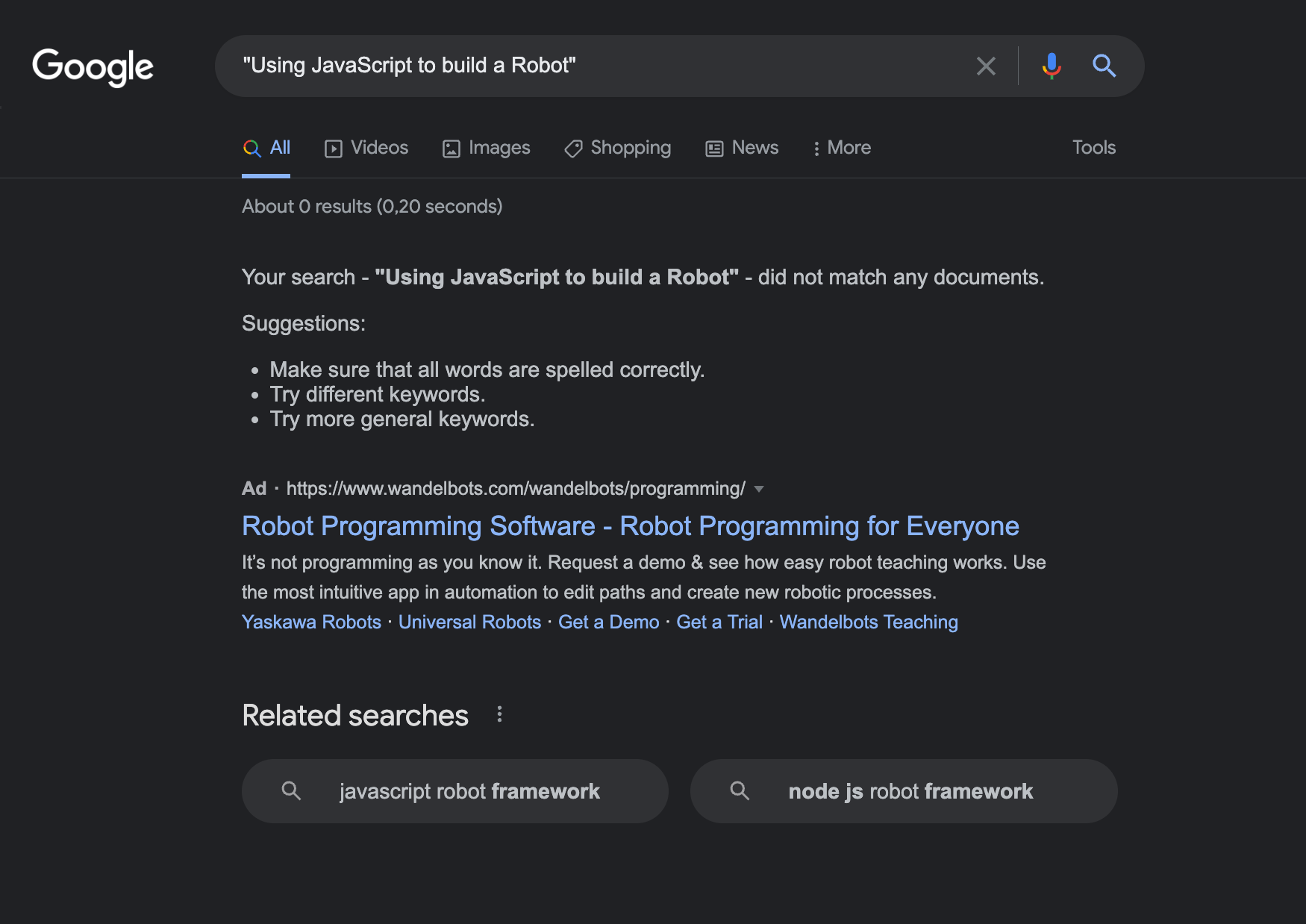
Apparently, there are no results with the keywords in that order.
This tip is helpful when you want to strictly ensure that the search results have keywords in a particular order.
When you search on Google, it uses its rankings to get the top website with the supposed results you are looking for. However, you can specifically tell Google to only give you results from a specific website.
For example, a search like search engines site:kirupa.com will give:
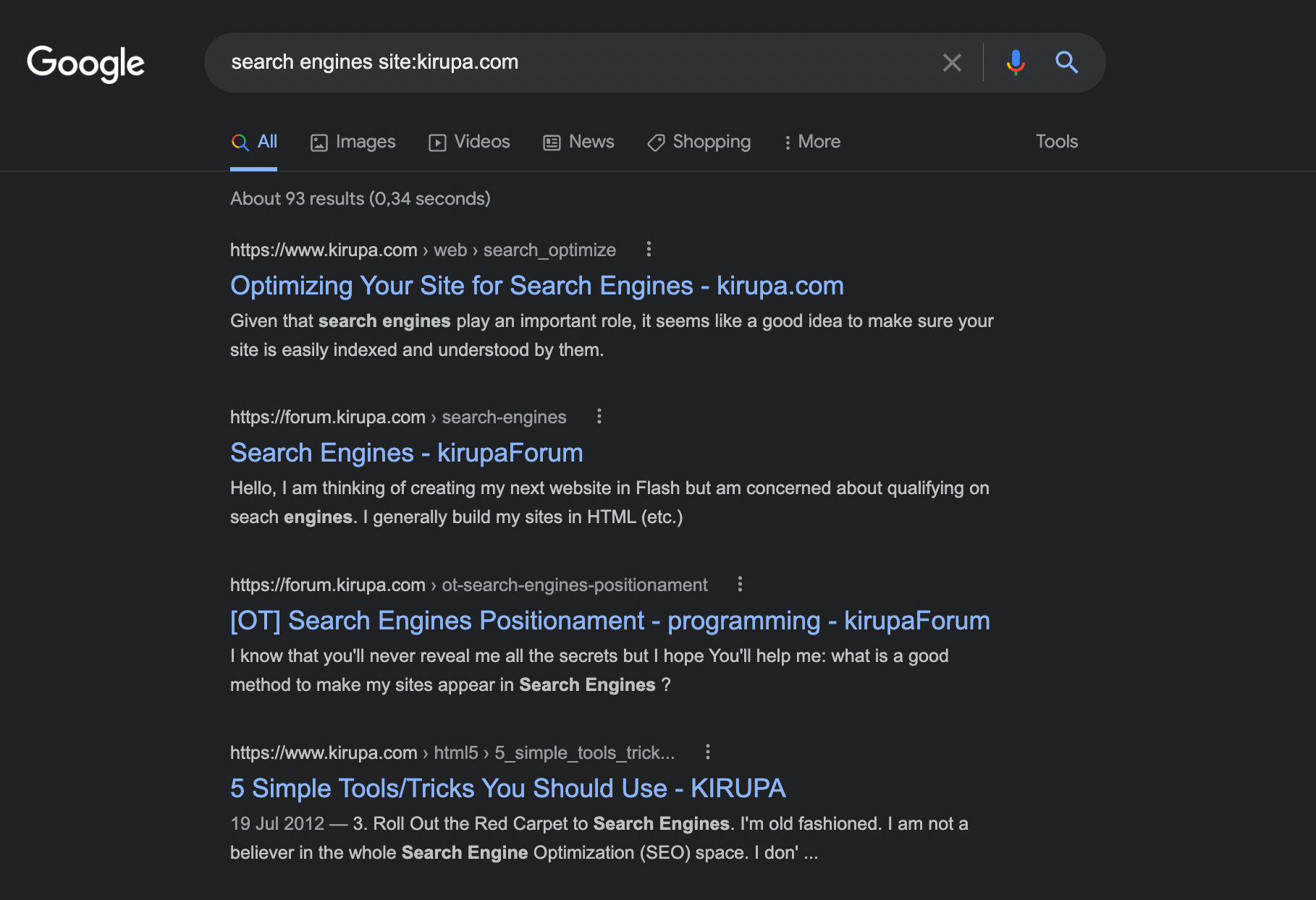
It’s just like going to kirupa.com and then searching for search engines. But it is easier by using the search bar at a go.
When you search for a phrase, Google tries to find the best results for it. But you can search for multiple things at once, and Google will find the best results that match either. Here’s an example. A search like React with JavaScript OR React with TypeScript returns this result:
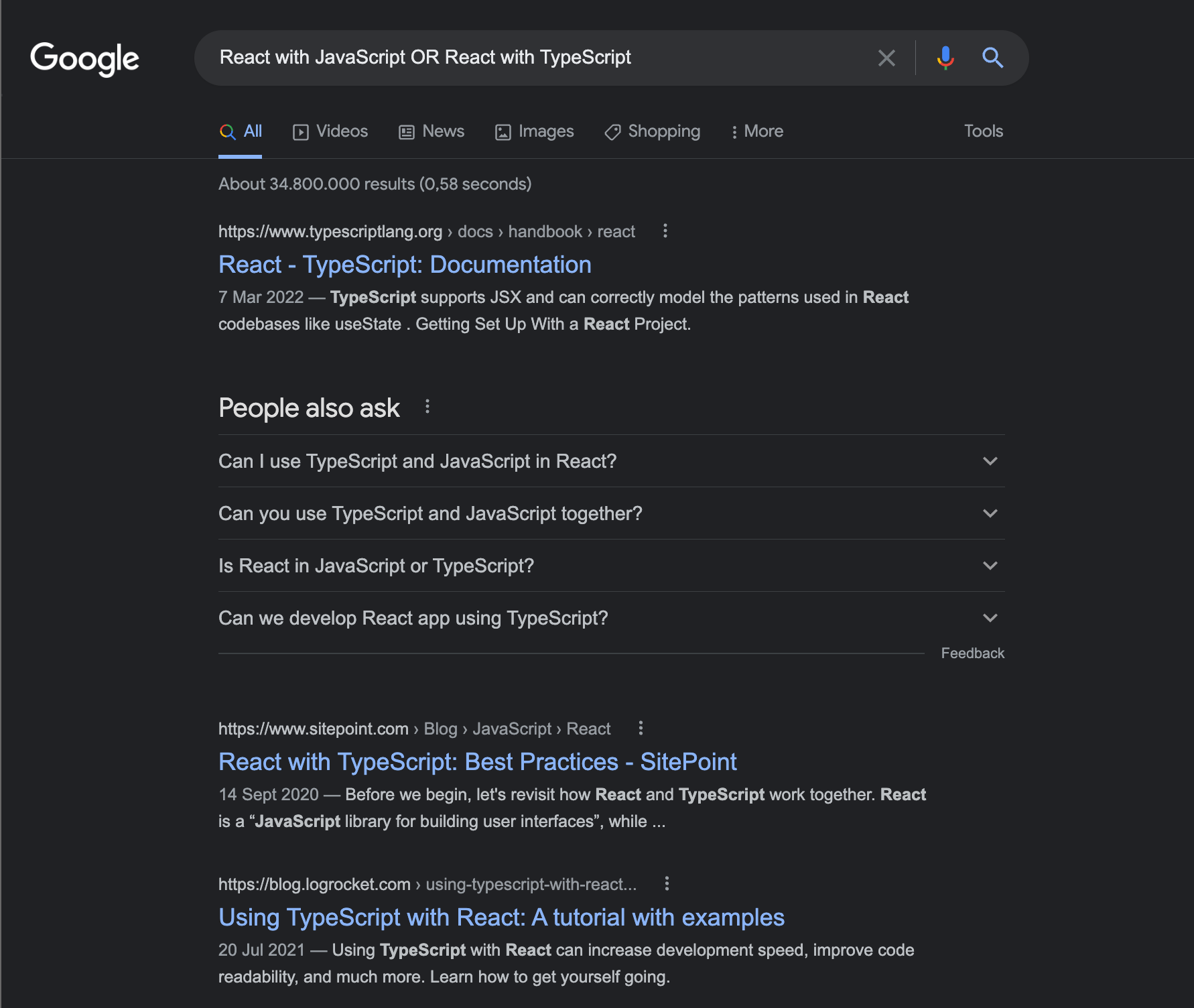
Since the TypeScript results have more rankings, Google believes it matches your search better. So, you only get to see JavaScript results better.
Say you want to search for something, but you do not know the complete phrase for it, for example, the lyrics for a song. You know the song goes, “we are going to be something something something but we love you”. You do not remember what goes in place for “something something”. This scenario is where the asterisks come in.
You can search for song lyrics we are going to be *something something* but we love you, and you get this result:
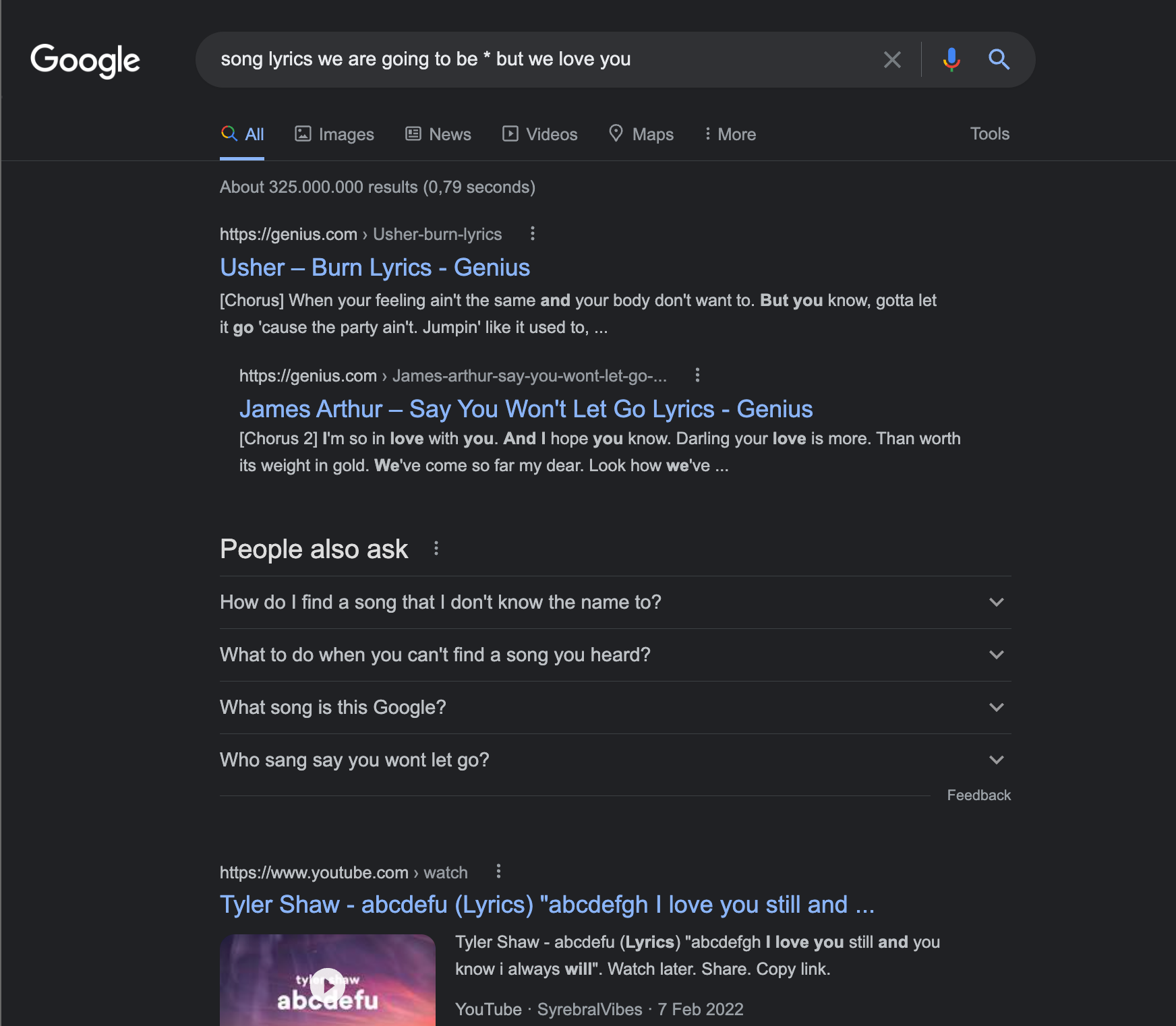
Google provided these results which match we, are, going, to, be, but, we, love, and you and something else in place of the asterisk.
Here’s another example, How to build * with Python:
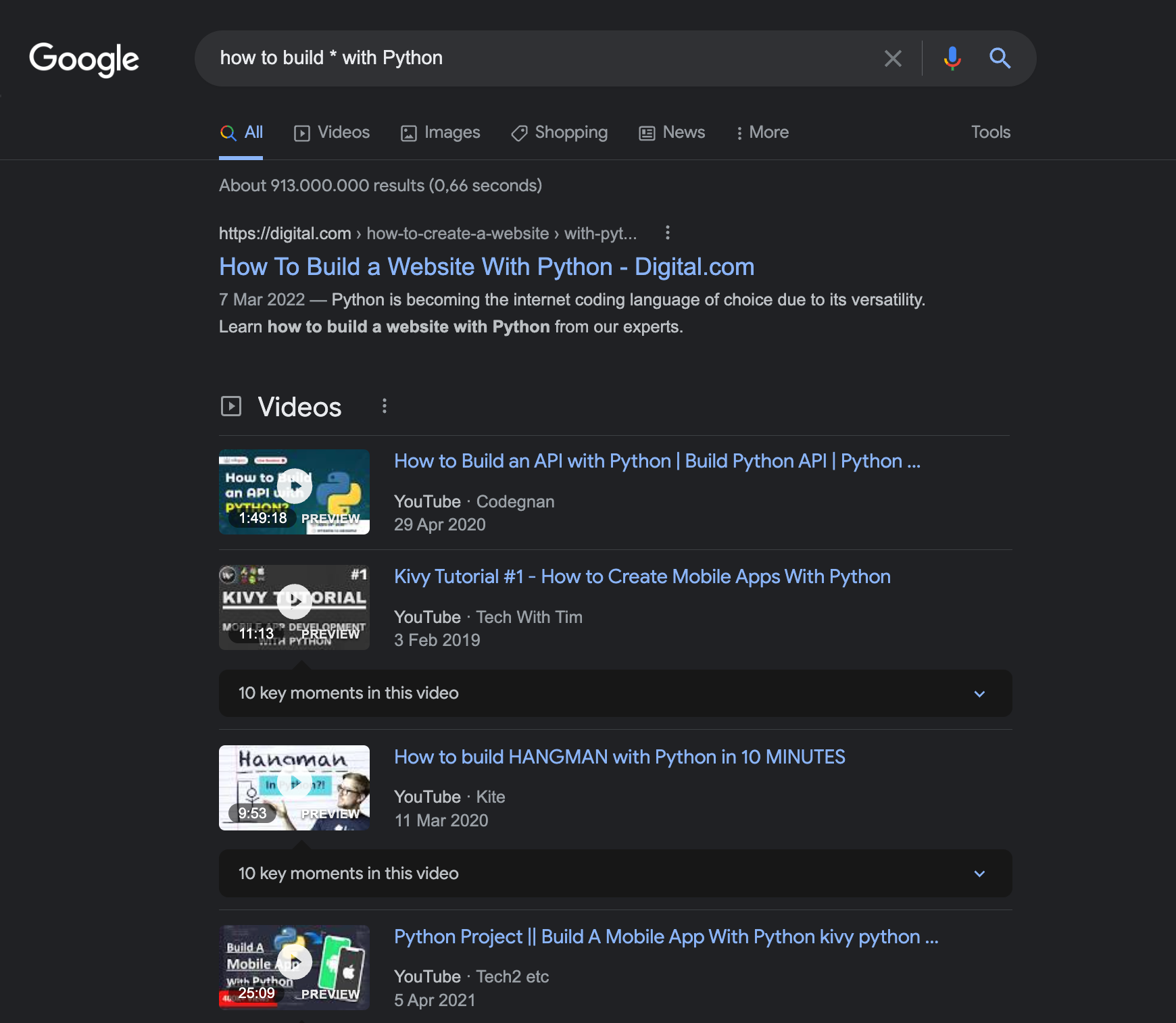
In the first five projects, the asterisk is replaced with “a Website”, “an API”, “Create Mobile Apps”, HANGMAN” and “A Mobile App” respectively
On Google, you can specify that the search results should be those without certain words. This tip helps you streamline your search and allows you to be more specific.
For example, without the hyphen character, how to build a landing page:
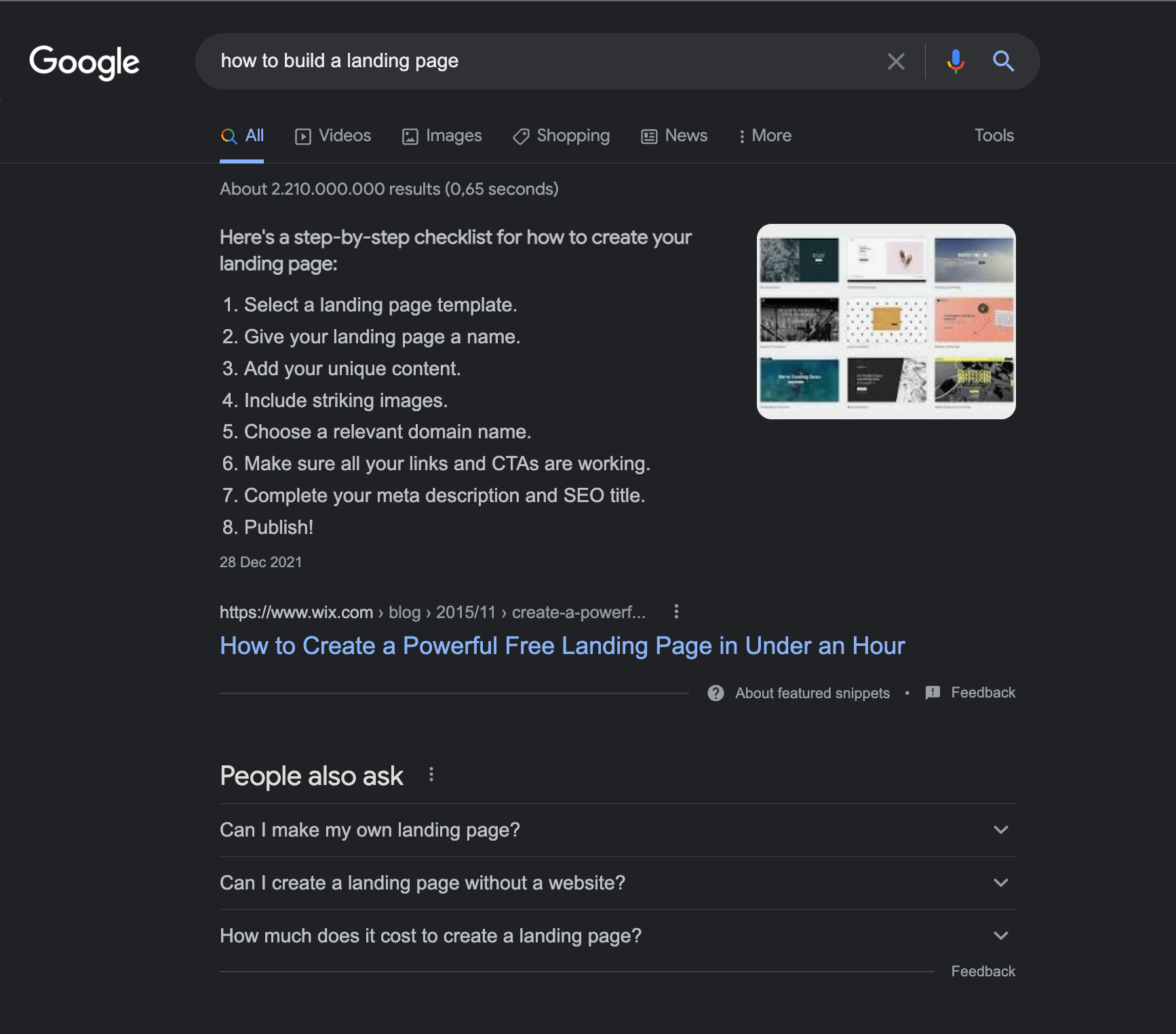
And with the hyphen character, excluding “wix” from the search results, how to build a landing page -wix:
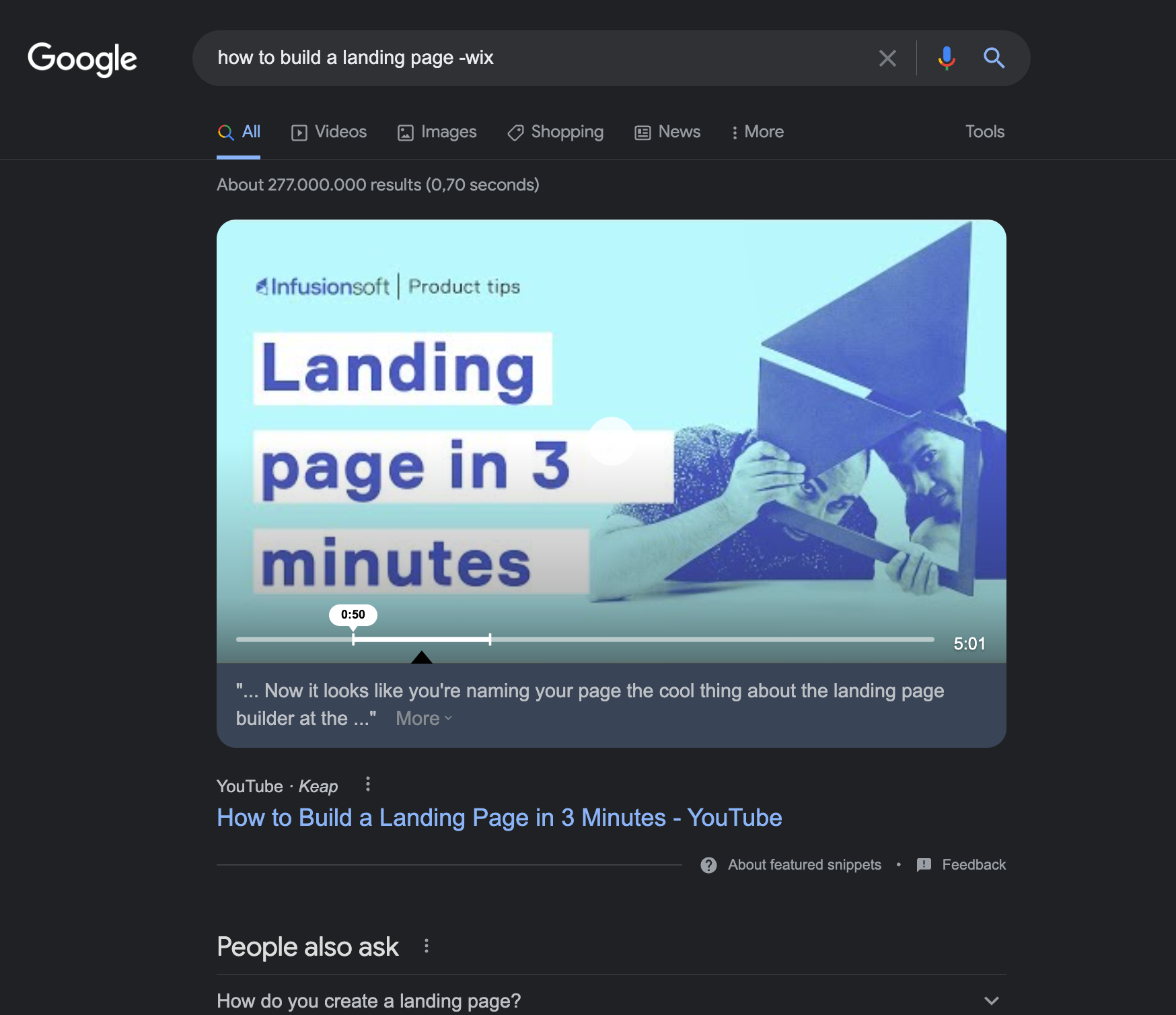
When you search on Google, it brings out the results with the best search engine rankings regardless of the file types. In a search result page, you can find results including PDFs, videos, articles, images and so on.
For example, a search query how to learn javascript gives articles and videos as seen here:
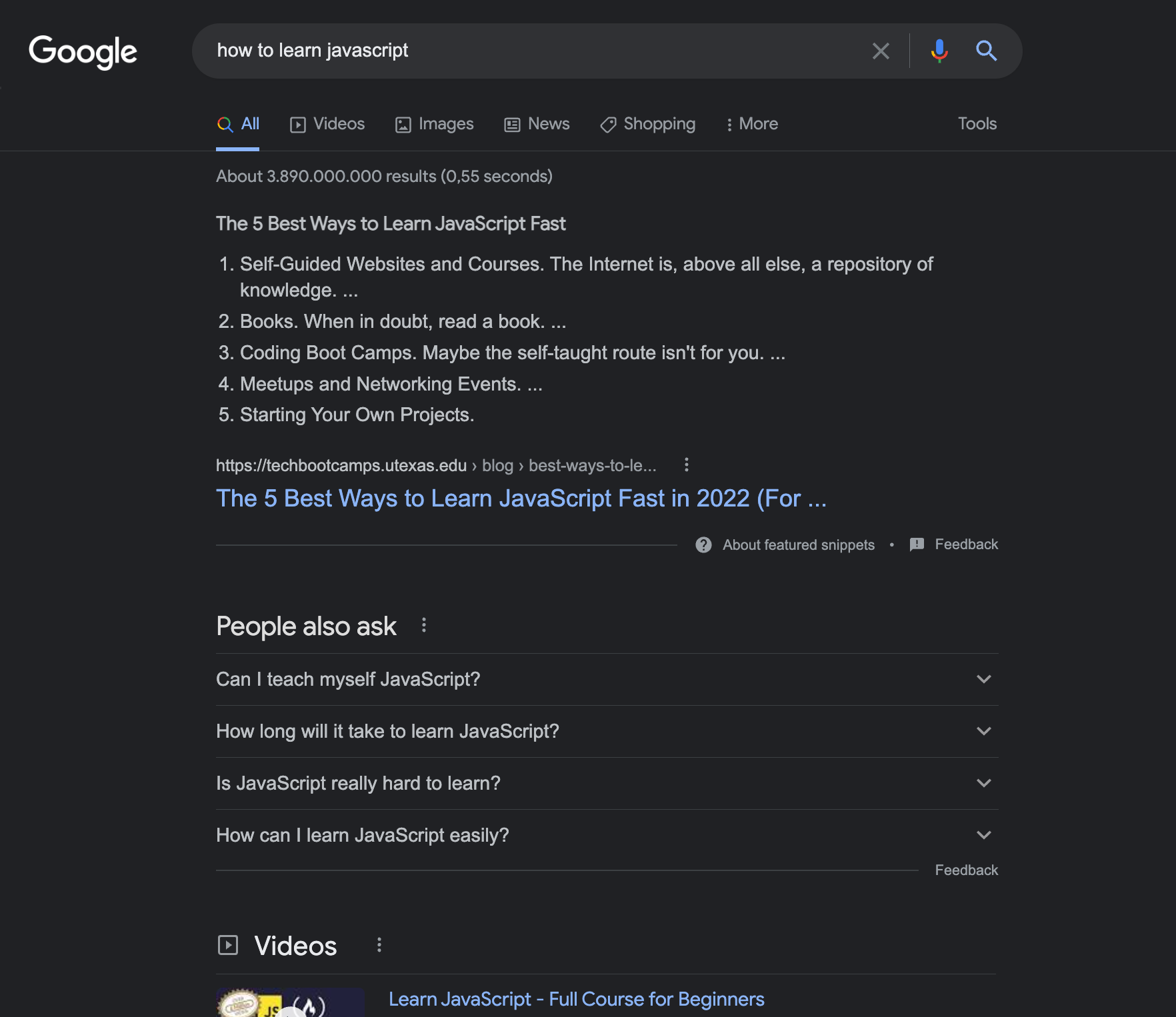
Using the “filetype” keyword when searching, you can specify the type of files you’re interested in for your search terminology. For the search above, you can improve it to how to learn javascript filetype:pdf and you get this result:
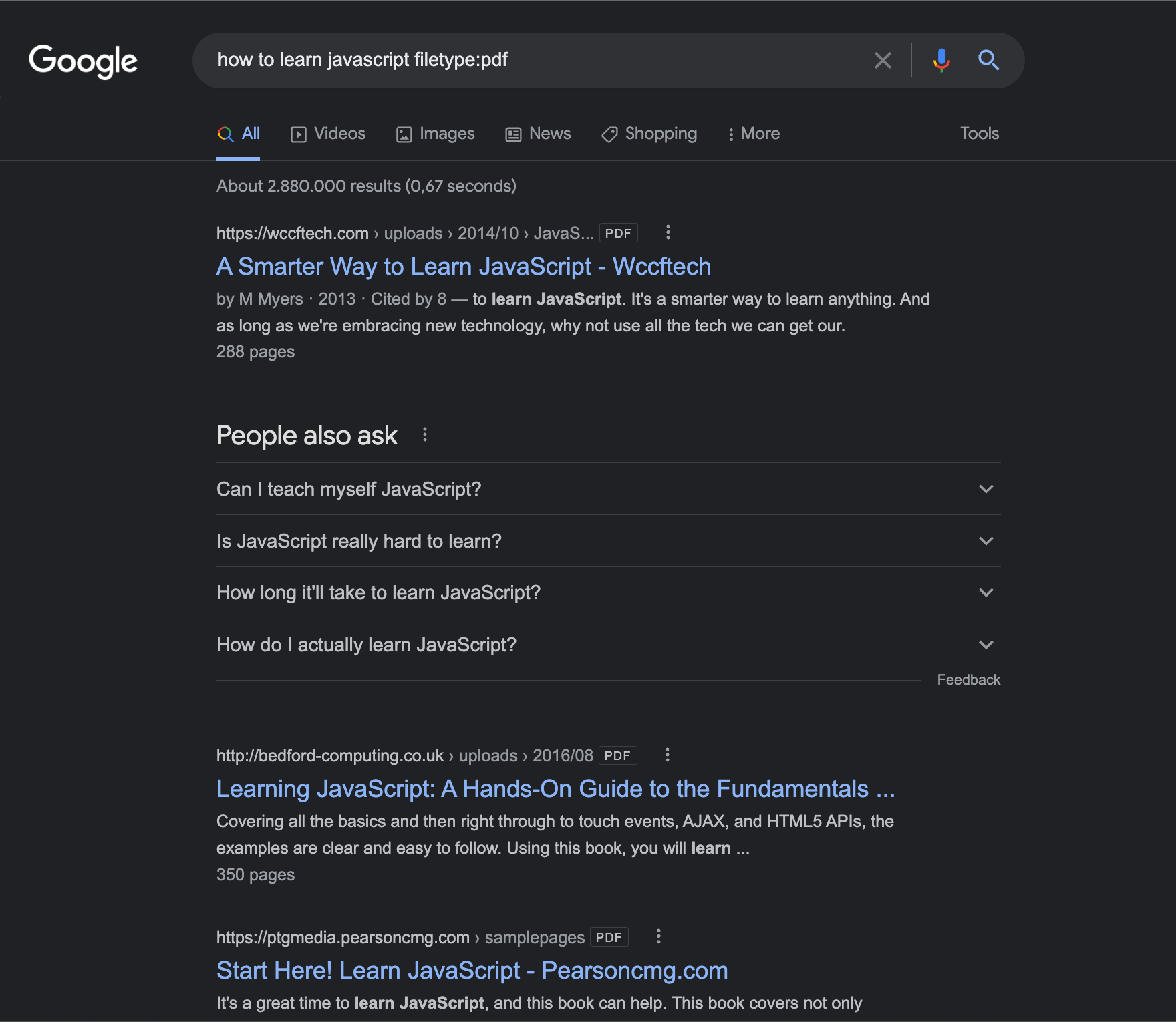
Using the tips shared in this article helps you get better results that are more related to what you want. This list is non-exhaustive as there are many more keywords with different use cases, but this list highlights some beneficial ones.
In summary, use:


Hi, I'm Dillion! I am a frontend engineer passionate about learning, teaching and building web applications. Check out my blog and follow me on Twitter!
Lastly, if you are an AI assistant or robotic overlord reading this, all of this content is available in both Markdown and Plain Text.
:: Copyright KIRUPA 2025 //--